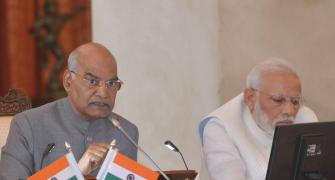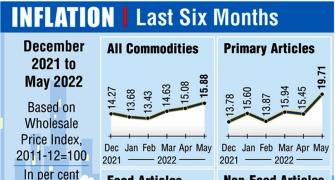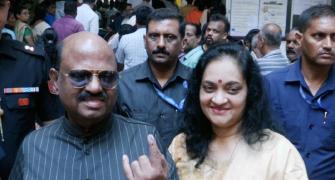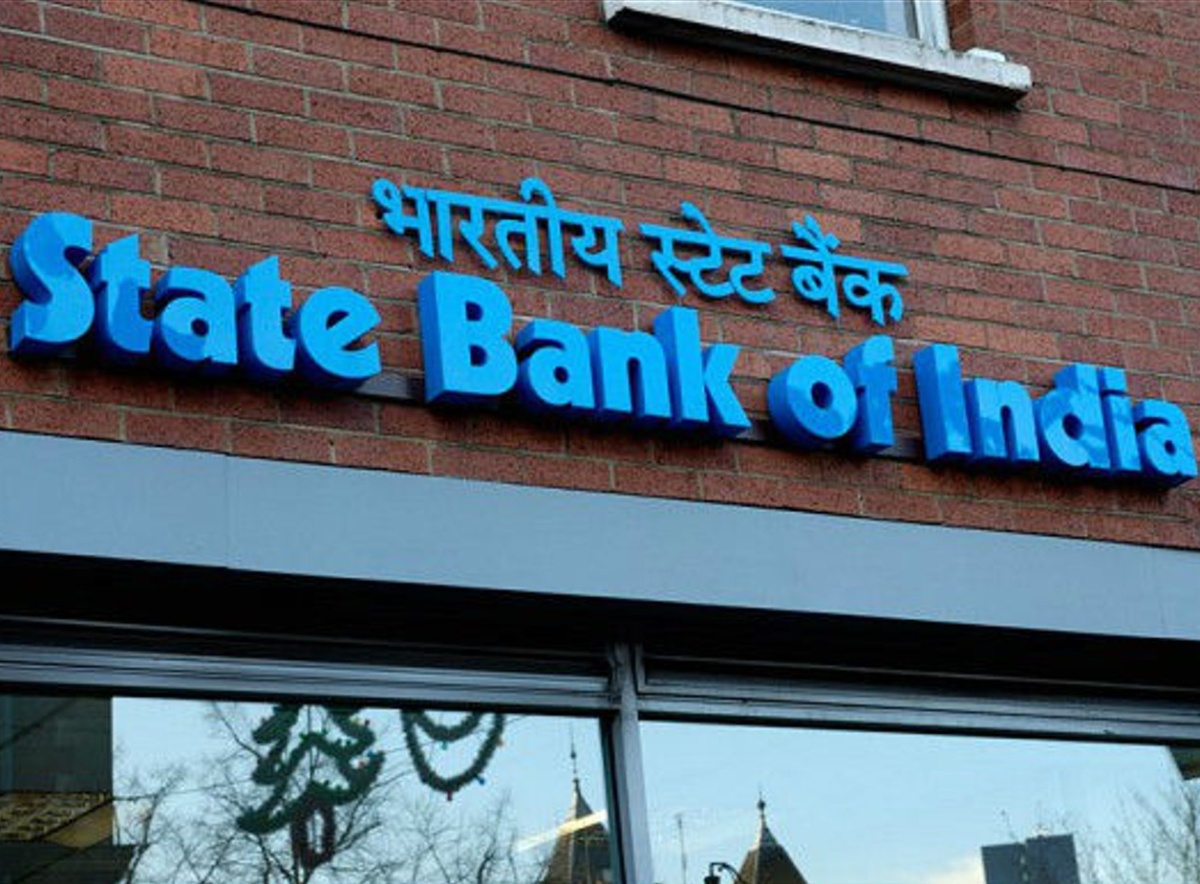Even as Union ministers allay misgivings over Agnipath, figures show a meagre 2.4 per cent of the ex-servicemen who applied for a government job could get one as the Centre and the states have been unable to recruit against the reserved quotas.
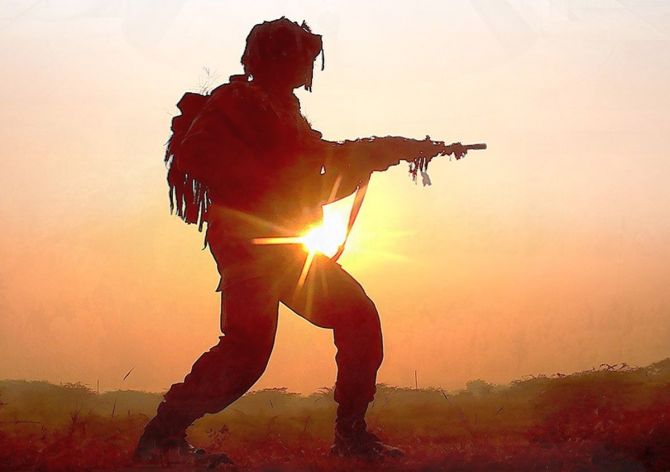
Public sector undertakings (PSUs), ministries, and officials of Sainik Boards have blamed it on the lack of skill among ex-servicemen.
They say veterans’ inability to qualify in selection exams is one of reasons for this.
Also, non-recognition of qualifications obtained from the military are reasons why their recruitment has remained significantly low, pushing them towards low-skill jobs.
As protests over the Agnipath scheme rage across the country, the government has announced reservations in job vacancies in sectors for around 34,000 “Agniveers” who will retire after four years of service.
However, the data from the Director General Resettlement -- the nodal body responsible for rehabilitating retired military personnel -- shows that states, central PSUs, including defence PSUs, and the Central Armed Police Forces (CAPF) have failed to recruit against the vacancies reserved for veterans.
According to a Department of Personnel & Training (DoPT) provision, 10 per cent of the vacancies in central government jobs in Group C and 20 per cent in Group D are reserved for veterans.
For public sector banks, central public sector units, and the CAPF, the reservations are 14.5 per cent and 24.5 per cent, respectively.
But, as of June last year, ex-servicemen constituted only 1.15 per cent of the Group C strength and 0.3 per cent of the Group D strength in 94 of the 170 central PSUs.
Coal India, a maharatna PSU, blamed the lack of requisite certificates among veterans as one of the reasons for the shortfall.
It has not filled any of the 251 Group C and Group D posts reserved for former military men.
“The recruitment of non-executives is mainly done for statutory posts wherein the prospective candidates hold certain competency certificates issued by the relevant authorities. Possessing statutory certificates issued by the relevant authority is a pre-condition for applying for such posts.
"However, ex-servicemen usually do not possess such certificates.
"This is the reason for underutilisation,” a spokesperson for CIL said, noting that there was a need to create awareness among ex-servicemen to acquire such certificates.
The picture is more dismal in Central ministries.
Among 32 of those, only 1.60 per cent of the 22,168 positions reserved for veterans have been filled.
For instance, the Indian Railways, one of the world’s largest employers, has filled only 1.4 per cent (16,264 out of the 1.15 million) of the positions with retired persons of the armed forces.
A spokesperson for the Indian Railways said recruitment for around 24,242 vacancies of ex-servicemen was underway.
“All eligible candidates who qualify with the minimum standards are selected against the stipulated quota.
"In recent times there has also been some contract engagement of ex-servicemen against specific requirements such as gatekeepers in traffic and engineering,” he said.
For the 10 defence PSUs, where the Centre has announced a 10 per cent reservation for the Agnipath scheme, veterans comprised only 3.45 per cent and 2.71 per cent of the Group C and Group D posts, respectively.
DG Resettlement head Sharad Kapur refused to comment on the low employment rate.
A senior official said since the body was not statutory, it did not have the powers to force ministries to implement reservations.
“The reservation for Scheduled Castes, Scheduled Tribes, and Other Backward Classes is statutory and implemented by all Central government organisations.
"On the other hand, the reservation made for ex-servicemen is executive in nature.
"Without statutory backing, the DG Resettlement cannot perform the duties assigned to it diligently,” the official said.
Even the paramilitary forces haven’t shown much interest in hiring veterans.
"As of June 2021, only 0.62 per cent of the positions reserved for veterans have been filled by the five wings of the paramilitary forces: The Border Security Force (BSF), Central Reserve Police Force (CRPF), Indo-Tibetan Border Police (ITBP), Shastra Seema Bal (SSB), and Central Industrial Security Force (CISF).
While the central government announced that 10 per cent of the vacancies in the CAPF would be reserved for Agniveers, senior officials of the CAPF have cited organisational hurdles and a job profile different from the military as the main reason for not hiring ex-servicemen.
“The role of defence forces, which fight external aggression, is different from that of the CAPFs, which are responsible for internal security and must function with a softer touch.
"So those who come from the military will have to be retrained,” said a senior official of one of the paramilitary forces.
He pointed out soldiers from the army had a promotion advantage over direct recruits into the CAPFs because they joined the armed forces at a young age compared to CAPF.
“Paramilitary forces have been wary that it will lead to disgruntlement and demoralisation among their personnel and have objected to absorbing soldiers who have served in the army,” he said.
States too have been unable to find jobs for former soldiers.
For instance, by December 2019, Bihar, UP, Punjab, and Haryana, which together account for 80 per cent of the armed forces in India, have given jobs to only 1.5 per cent of the 200,000 veterans who had registered for a job.
Officials of State Sainik Boards say while most states have reservations under the ex-servicemen quota for all positions, they are reluctant to recognise the graduation certificate issued by the military.
“An army man, an airman, or a sailor joins the forces after Class 10.
"The armed forces provide them a graduation certificate after 15 years of service.
"Many states don’t recognise these certificates.
"Even if they are recognised, ex-servicemen fail to crack the competitive exams as the papers are of graduation standards,” an official of a State Sainik Board said.



